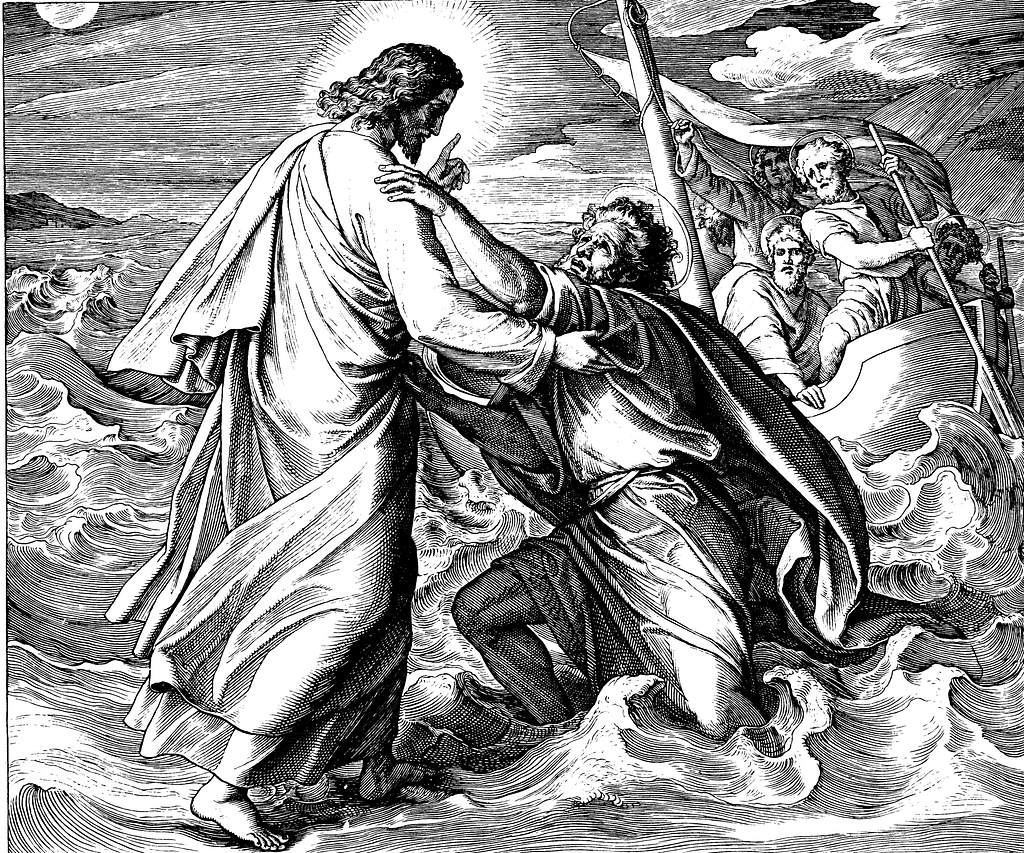How to Fail God and Learn From It

So many in this world are constantly searching for the means to be successful in life. Yet what they don’t know is that the only way to succeed in this world, and more importantly, afterward is by following God’s Word, the Bible. It’s full of success. But how many realize that the Bible also gives many instances on how to fail God? It’s true! Let’s take a look at a few examples:
Eve Showed How to Fail God Through a Forbidden Tree
Man’s first failure came right at the beginning of the human race. God specifically told Adam and Eve not to eat of the Tree of the Knowledge of Good and Evil. This commandment was simple: Don’t eat the tree’s fruit and your relationship with God will remain good. But, sadly, it did not work out well.

Adam Follows Eve’s Example
Eve was deceived by the serpent, who was glad to show her how to fail God, into taking a bite of the forbidden produce. But this was only part of the actual act of failure. Then she gave the fruit to Adam to eat. At this point, he could have refused and rebuked her for yielding to the deception. But he willfully decided to go ahead and eat the fruit.
His point of failure came when he deliberately chose to disobey God. Now their relationship with God was broken and sin entered the picture.
And from that point forward, all of humanity-to-come became destined to inherit a sin nature. This means that we are born inclined toward sinning rather than against it—all due to the failure of Adam and Eve.
King Saul Was Ordered Not to Spare the Amalekites
Now see what happened with the Israelite’s King Saul. God told him to “go and [strike] Amalek, and utterly destroy all that they have, and spare them not; but slay both man and woman, infant and suckling, ox and sheep, camel and [donkey]” (1 Samuel 15:3). The Amalekites hindered and tried to destroy the Israelites when they left Egypt and journeyed through the wilderness.
So Saul mustered thousands of soldiers and headed over to Amalek, dutifully following God’s command. He even warned the Kenites, who dwelt among the Amalekites, to leave the region or they would also be killed. (The Kenites had been kind to the people of Israel in their past journey, unlike the Amalekites).

Saul Spared the King and Kept the Spoil
Upon reaching Amalek, Saul and his forces“…took Agag the king of the Amalekites alive, and utterly destroyed all the people with the edge of the sword” (1 Samuel 15:8). So far, so good. But the problem was that Saul did not fully obey what God had ordered. “…Saul and the people spared Agag, and the best of the sheep, and of the oxen, and of the fatlings, and the lambs, and all that was good, and would not utterly destroy them: but every thing that was vile and refuse, that they destroyed utterly” (1 Samuel 15:9). He let their king live and kept the best of the livestock.
Saul acted upon his own best interests, not what God required of him.
Saul Further Showed How to Fail God By Lying and Blaming Others
And not only did Saul disobey God, he also lied to Samuel, the priest. “…Saul said unto Samuel, Yea, I have obeyed the voice of the Lord, and have gone the way which the Lord sent me, and have brought Agag the king of Amalek, and have utterly destroyed the Amalekites” (1 Samuel 15:20). In the next verse he plays the victim, shifting the blame to his people. “…the people took of the spoil, sheep and oxen, the chief of the things which should have been utterly destroyed, to sacrifice unto the Lord thy God in Gilgal.”
Samuel saw though all of this. He proclaimed to Saul that obedience to God is more important than sacrifice. Then the Lord led him to declare, “For rebellion is as the sin of witchcraft, and stubbornness is as iniquity and idolatry. Because thou hast rejected the word of the Lord, he hath also rejected thee from being king” (1 Samuel 15:23).
Saul demonstrated the means of how to fail God by doing what suited him rather than God. He was therefore rejected as king because He would not fully obey God.

Peter Demonstrated How to Fail God Through Doubt
A New Testament example of failure can be found in one of Jesus’ own disciples. “…Peter…said, Lord, if it be Thou, bid me come unto Thee on the water. And He said, Come. And when Peter was come down out of the ship, he walked on the water, to go to Jesus. But when he saw the wind boisterous, he was afraid; and beginning to sink, he cried, saying, Lord, save me. And immediately Jesus stretched forth His hand, and caught him, and said unto him, O thou of little faith, wherefore didst thou doubt?” (Matthew 14:28-31).
Peter was not bashful, to say the least! He spoke his mind, as portrayed later when he insisted that he would stand by Jesus even unto death—only to be informed by Him, “Wilt thou lay down thy life for my sake? Verily, verily, I say unto thee, The [rooster] shall not crow, till thou hast denied me [three times]” (John 13:38).
When He Took His Eyes Off of Jesus He Grew Fearful
Peter did believe that he could walk on the water, all the way out to where Jesus was standing. His downfall came when he took his focus off of Jesus and put it onto the conditions around him, where the winds were still rough. And then, “…when they were come into the ship, the wind ceased.”
Peter’s example on how to fail God was when doubt found room to work in his heart. No longer did he trust in Jesus’ faithfulness.
Instead, he slipped back into believing in himself, and then grew fearful and began sinking. But “there is no fear in [godly] love; but perfect love [drives] out fear: because fear hath torment. He that feareth is not made perfect in love” (1 John 4:18). Peter dearly loved Jesus, but his faith failed because it was not yet strong enough to let go completely and totally trust Him.

Our Failure Comes Through Disobedience Of God’s Word
Throughout the Bible failure comes after God’s Word is disobeyed. When we listen to or follow anything other than what God has commanded, we will fail. Adam and Eve obeyed a serpent. King Saul looked to himself. Peter let the wind distract him. Over and over, the Word of God reveals that failure is a product of disobedience.
God Does Not Want Us to Fail
But He does not desire for us to follow ways on how to fail God. We find so many occasions of failure recorded in His Word because He wants us to see that we will ultimately fail when we turn away from Him and do what we consider to be right. He wants us to not just read His Word, but to follow it. Let’s read the Bible therefore, and learn from the downfalls of others—and not become another example of failure ourselves.
[Additional image credits: Featured image [AI generated] (when applicable) by Alana Jordan from Pixabay; Opening image by Tumisu from Pixabay]




